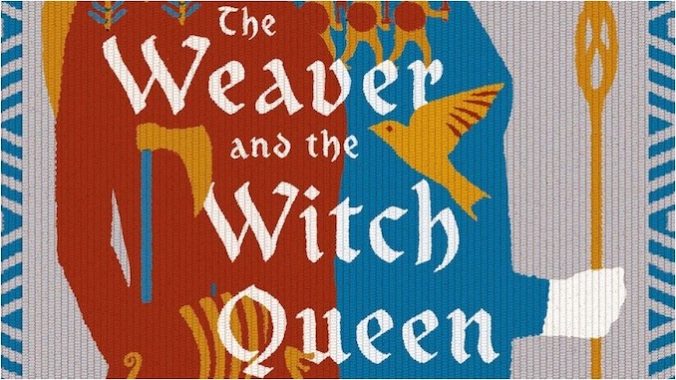Feminist Historical Fantasy The Weaver and the Witch Queen Explores the Complex Bonds of Female Friendship

Author Genevieve Gornichec’s debut novel The Witch’s Heart is one of the best books that hit shelves in 2021 (and one that you probably haven’t read). A rich, lyrical reimagining of the story of Norse giantess Angrboda, who is primarily remembered as the mother of the trickster god Loki’s three monstrous children, it’s one part love story, one part apocalyptic vision, and a quest tale that literally spans thousands of years. (It’s incredible, is what I’m saying.) It also instantly cemented Gornichec as an author to watch in the historical fantasy space, a writer whose dedication to centering female perspectives in historical stories in which women are often treated as little more than afterthoughts. Or outright villains on the days they’re remembered at all.
Her second novel, The Weaver and the Witch Queen puts a slightly magical spin on the origins of the woman who would come to be known in the Norse sagas as Gunnhild, Mother of Kings. In those tales, she’s almost universally remembered in a negative light—as most powerful women from history tend to be, particularly when few facts about their lives survive. But what we do know is that she was an influential and powerful figure in her own right, who is frequently connected with sorcery (a trait she once again shares with women from history who dared to position themselves as anyways equal to men).
Gornichec’s book takes the scant details about the historical Gunnhild’s life—her author’s note has some helpful details about which specific sagas her story draws from—and spins them into a rich and magical tale of sisterhood and survival, revenge and sacrifice, with a satisfying dollop of enemies to lovers romance and trans representation on top. The historical world she constructs is rich and vivid, full of the sort of lived-in, careful details that make the setting come alive on the page. Yes, there are plenty of dark, dangerous elements—raids are frequent, death is commonplace, and, violence lurks on the fringes of almost every interaction. Power is only held by those who can keep it, who find themselves frequently under the constant threat of betrayal or ever-encroaching paranoia about who, if anyone, they can trust. Families—most often sons—turn on one another in the name of personal advancement, and almost everyone is willing to do pretty much anything for a shot at a crown.
The Weaver and the Witch Queen follows the story of Gunnhild, daughter of a largely absent noble father and a distant, unloving mother, who has been friends with Oddny and Signy, two poorer sisters from a neighboring farm all her young life. The three have sworn a blood oath to always be there for one another, come what may, until a visiting seeress visits a dark prophecy on the trio, in which their futures are inexplicably bound together, their destinies clouded by the fate of one of their number.
-

-

-

-

-

-

-

-

-

-

-

-

-

-

-

-

-

-

-

-

-

-

-

-

-

-

-

-

-

-

-

-

-

-

-

-

-

-

-

-








































